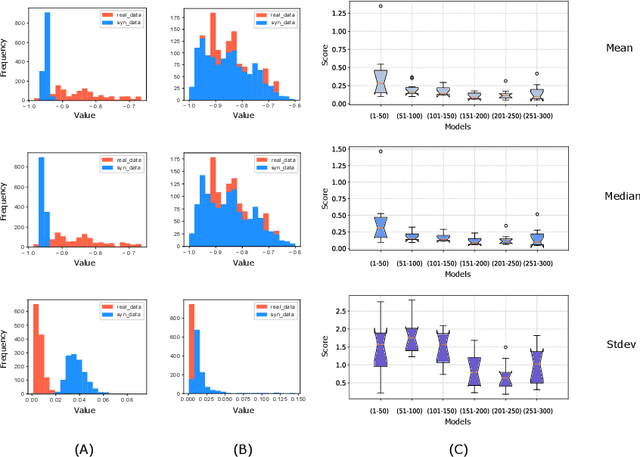Towards Synthetic Multivariate Time Series Generation for Flare Forecasting
Paper and Code
May 16, 2021



One of the limiting factors in training data-driven, rare-event prediction algorithms is the scarcity of the events of interest resulting in an extreme imbalance in the data. There have been many methods introduced in the literature for overcoming this issue; simple data manipulation through undersampling and oversampling, utilizing cost-sensitive learning algorithms, or by generating synthetic data points following the distribution of the existing data. While synthetic data generation has recently received a great deal of attention, there are real challenges involved in doing so for high-dimensional data such as multivariate time series. In this study, we explore the usefulness of the conditional generative adversarial network (CGAN) as a means to perform data-informed oversampling in order to balance a large dataset of multivariate time series. We utilize a flare forecasting benchmark dataset, named SWAN-SF, and design two verification methods to both quantitatively and qualitatively evaluate the similarity between the generated minority and the ground-truth samples. We further assess the quality of the generated samples by training a classical, supervised machine learning algorithm on synthetic data, and testing the trained model on the unseen, real data. The results show that the classifier trained on the data augmented with the synthetic multivariate time series achieves a significant improvement compared with the case where no augmentation is used. The popular flare forecasting evaluation metrics, TSS and HSS, report 20-fold and 5-fold improvements, respectively, indicating the remarkable statistical similarities, and the usefulness of CGAN-based data generation for complicated tasks such as flare forecasting.
 Add to Chrome
Add to Chrome Add to Firefox
Add to Firefox Add to Edge
Add to Edge